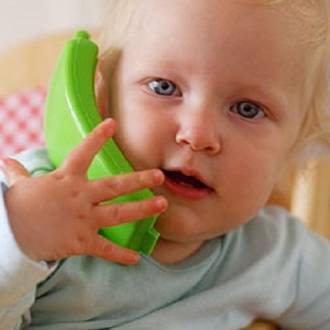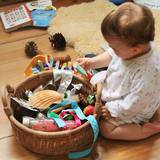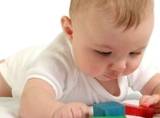Shop
01812
https://www.under5s.co.nz/shop/Hot+Topics+Articles/Child+Development/Speech+development+in+preschool+children.html
Speech development in preschool children
|
A common worry for parents is their child’s speech and language development. Variations in development from one child to another can exist because of environment, genetics, health, and special needs. So what is the expected level of speech and language development, and when should you follow up on a concern?
|
You might also be interested in ...
What's all the fuss about heuristic play?
Heuristic play is about playing with real-life, everyday objects and providing kids with an opportunity for open-ended discovery. When children are involved in heuristic play, they are using familiar objects in different ways. It is the process of exploring the different ways to use the objects that is important in the play.
6 tips on Tummy Time for babies
Not all babies like their first few sessions of tummy time, but with your encouragement it’s an early developmental milestone they’ll start to enjoy in their own time. However, the sooner you start, the quicker they will adapt. Check out our useful tummy time tips.
join usJoin us on social media for all our latest news. |
sign upSign up and receive our latest newsletters. |
|







Variations in development from one child to another can exist because of environment, genetics, health, and special needs.
So what is the expected level of speech and language development, and when should you follow up on a concern?
Speech development in preschool children
1. How do children acquire language skills?
Language acquisition takes time and practice. Children learn language through natural interaction with people in everyday settings. Parents are their children’s best teachers.
The rule here is 'the more, the better'; interact with your child in as many different, engaging, fun situations as possible, so that they realize that language permeates all that we do in all sorts of different ways.
Children make 'errors' in language such as, the plural of mouse is mouses. This is a natural part of the trial and error process of learning and will naturally start to correct themselves in time.
2. Speech language milestones
General speech language milestones support parents to make assessments about how their child’s language is developing.
Specific speech and language skills should be thought of as occurring within a range of time rather than by exact ages.
As a guideline, speech language milestones for children include:
By the age of one year
By the age of two years
By the age of three years
By the age of four years
3. Speech & language difficulties - behavioural clues
There are common behaviours that may be signs of potential speech and language difficulties that parents can watch for.
For instance,
4. What to do if you're concerned about your preschooler's speech & language development?
Specific speech and language skills should be thought of as occurring within a range of time rather than by exact ages.
Delayed speech or language development is common in childhood. It affects five to ten percent of preschool kids.
Bilingual kids may be slightly behind their peers in the preschool years. By age five they should have caught up.
If you’re worried about your child’s language, or the clarity of your child’s speech, talk to your child’s kaiako, early childhood teacher, your doctor, or well child provider.
There are many effective ways to support children who have delayed speech and language.
Your child’s hearing is likely to be checked as hearing loss is a common reason for delayed speech.
A speech-language therapist may be recommended for your child. They check the muscles in your child’s mouth are developing as expected and may give your child speech exercises to practice.
Group Special Education run classes for parents are another great source of information. Through the use of activities and group discussions, parents learn to create and take advantage of everyday opportunities to improve their child’s communication skills.
More kids language articles to enjoy:
Source: This article has been written by Creators, a nationwide service offering quality home-based care and education. Creators are passionate about seeing every child’s unique talent being recognized and nurtured.